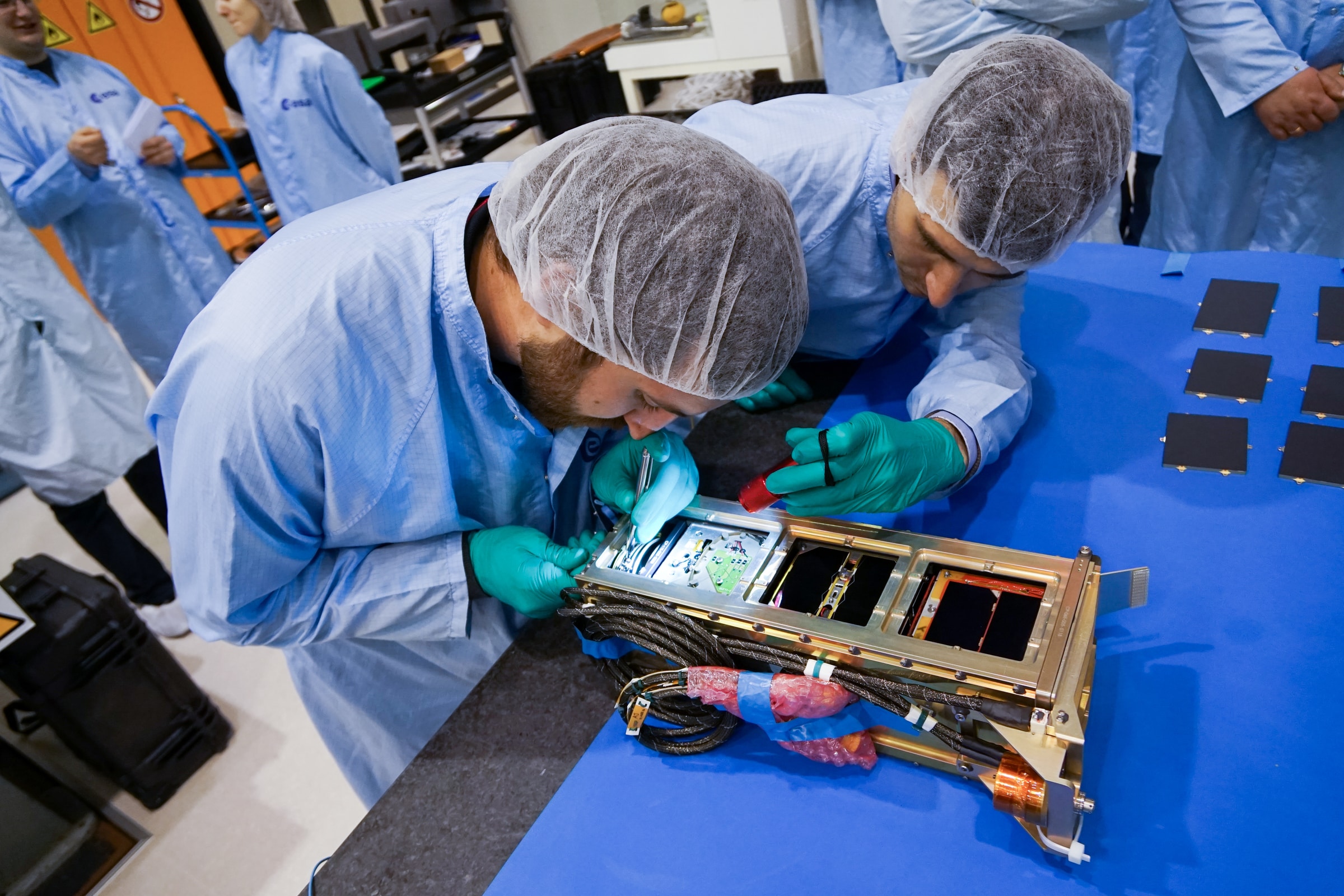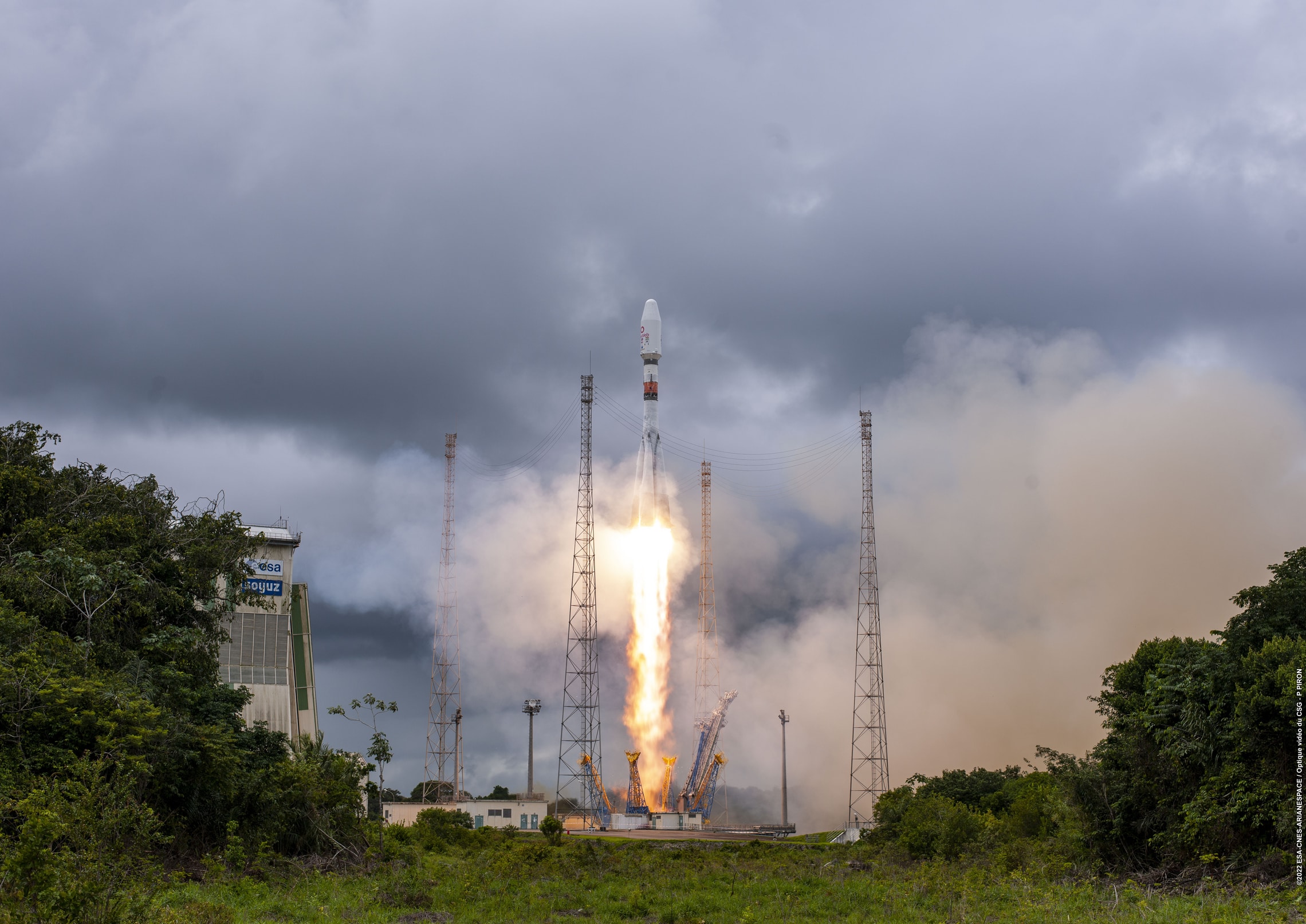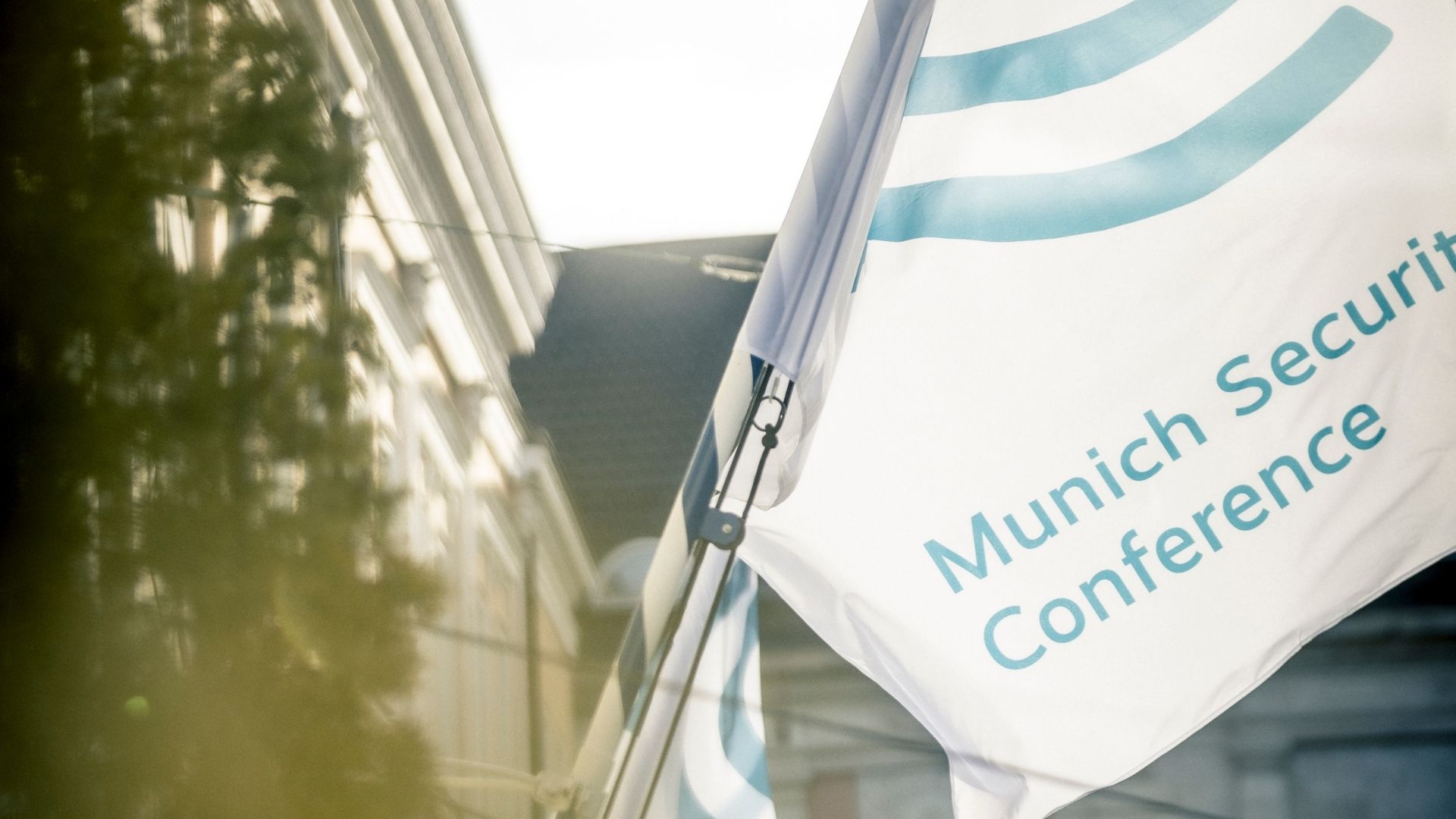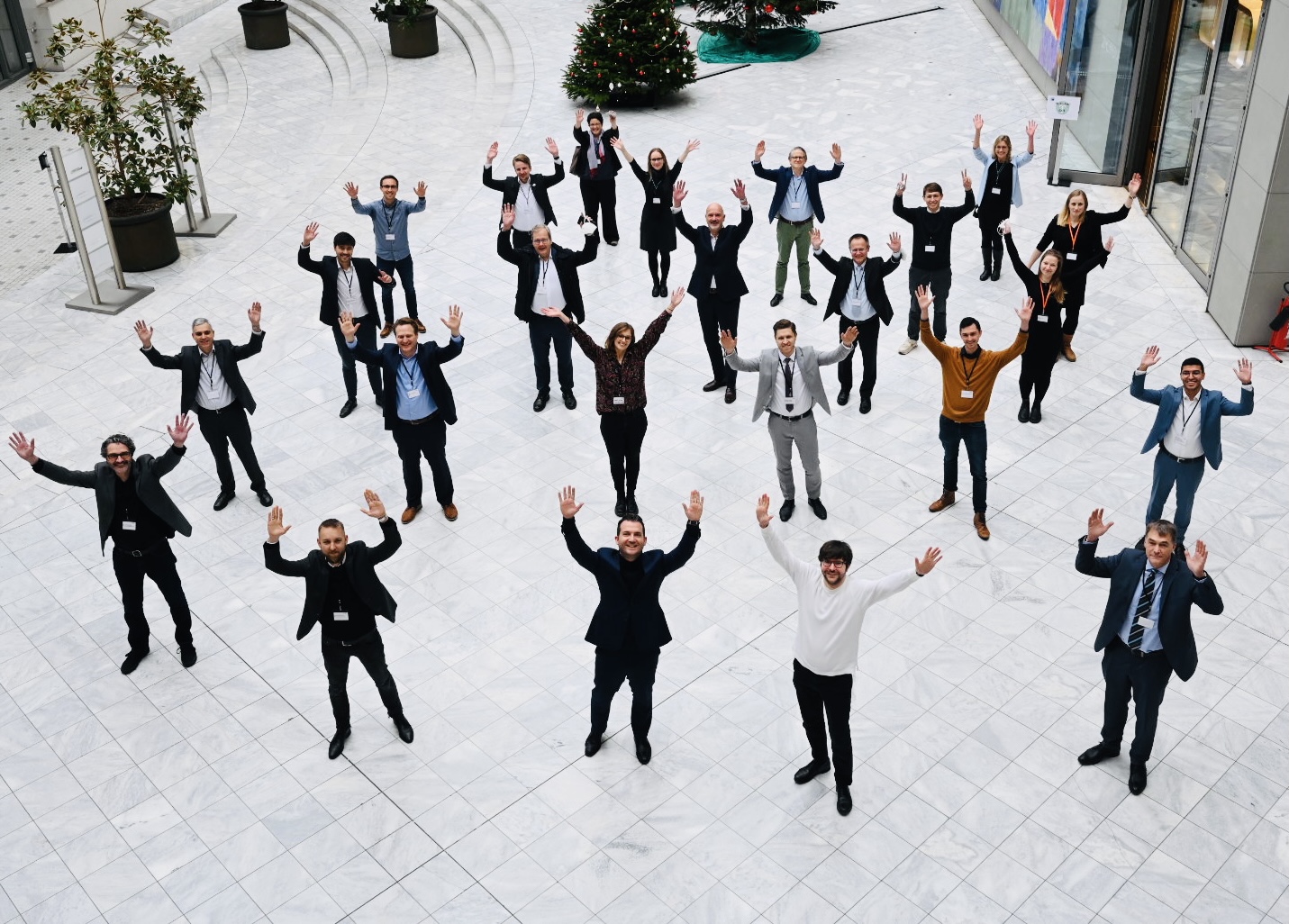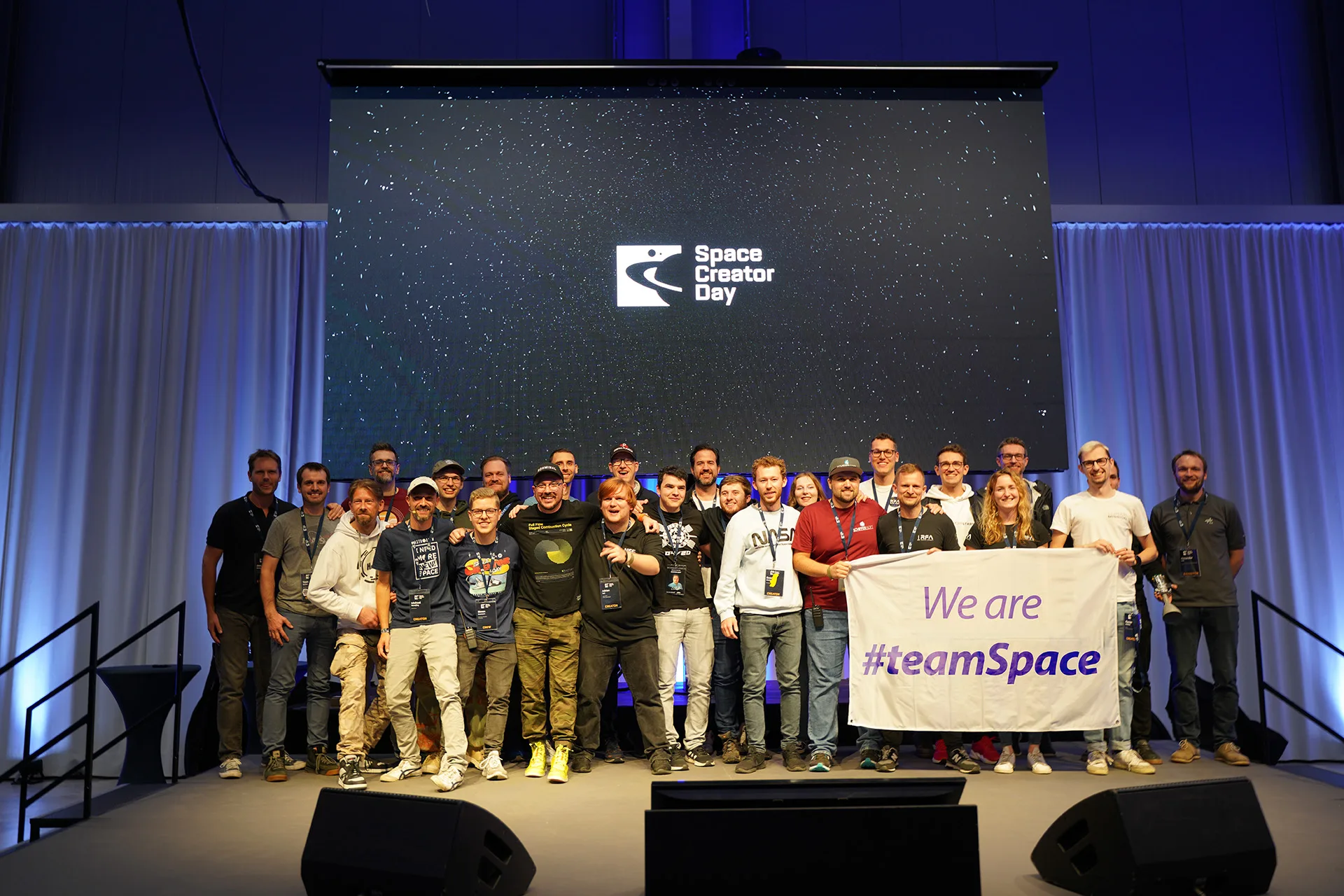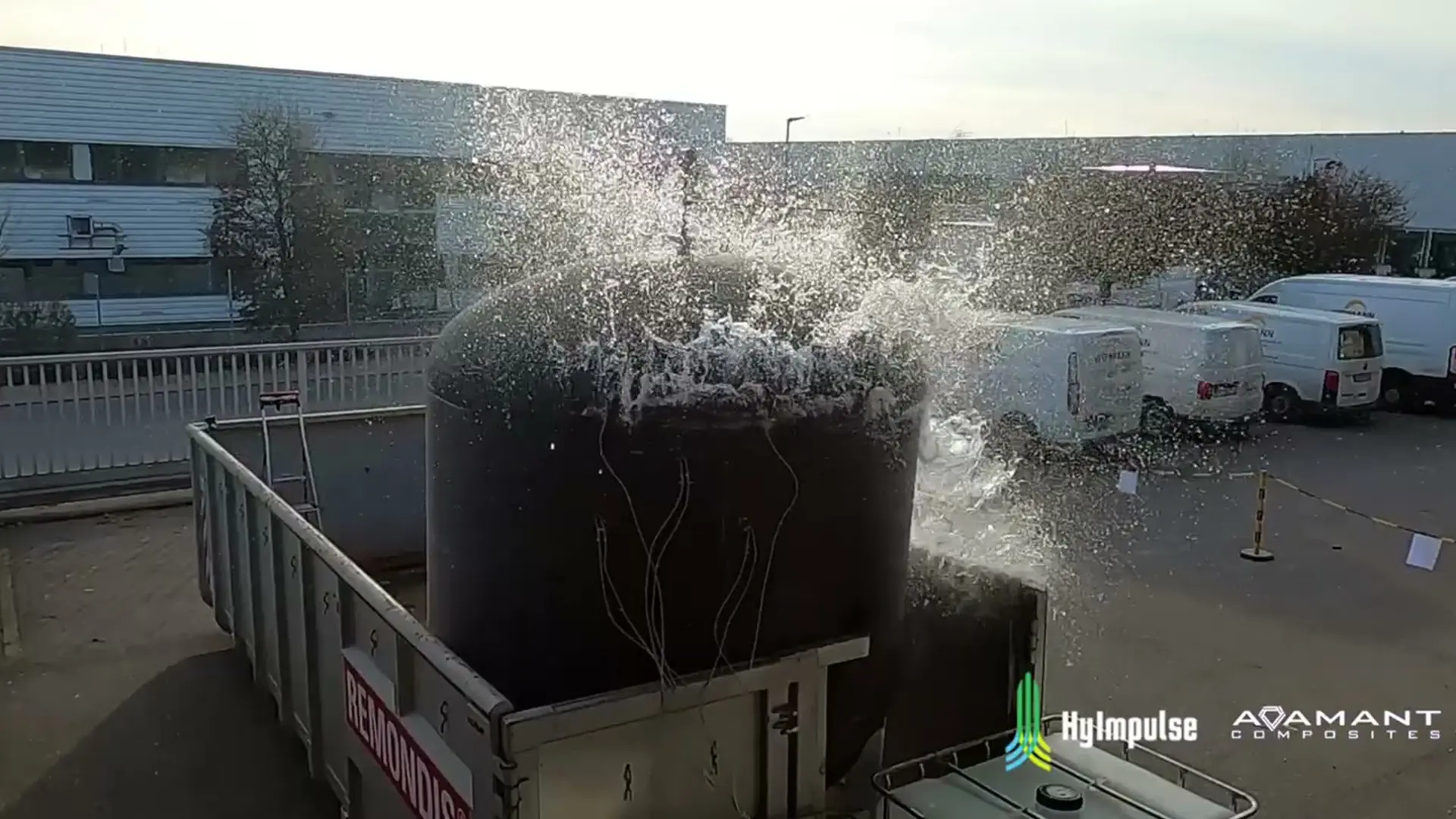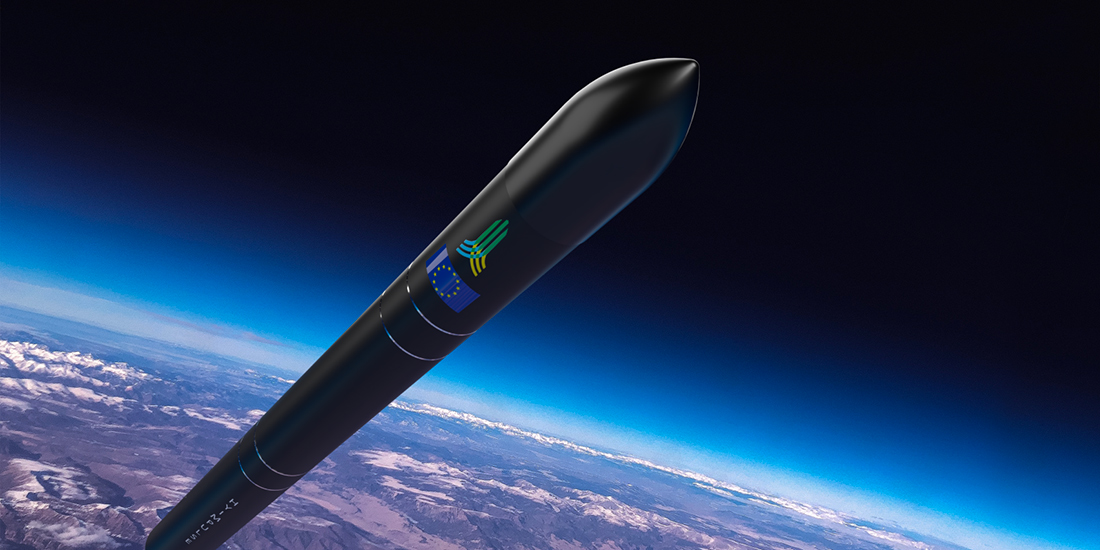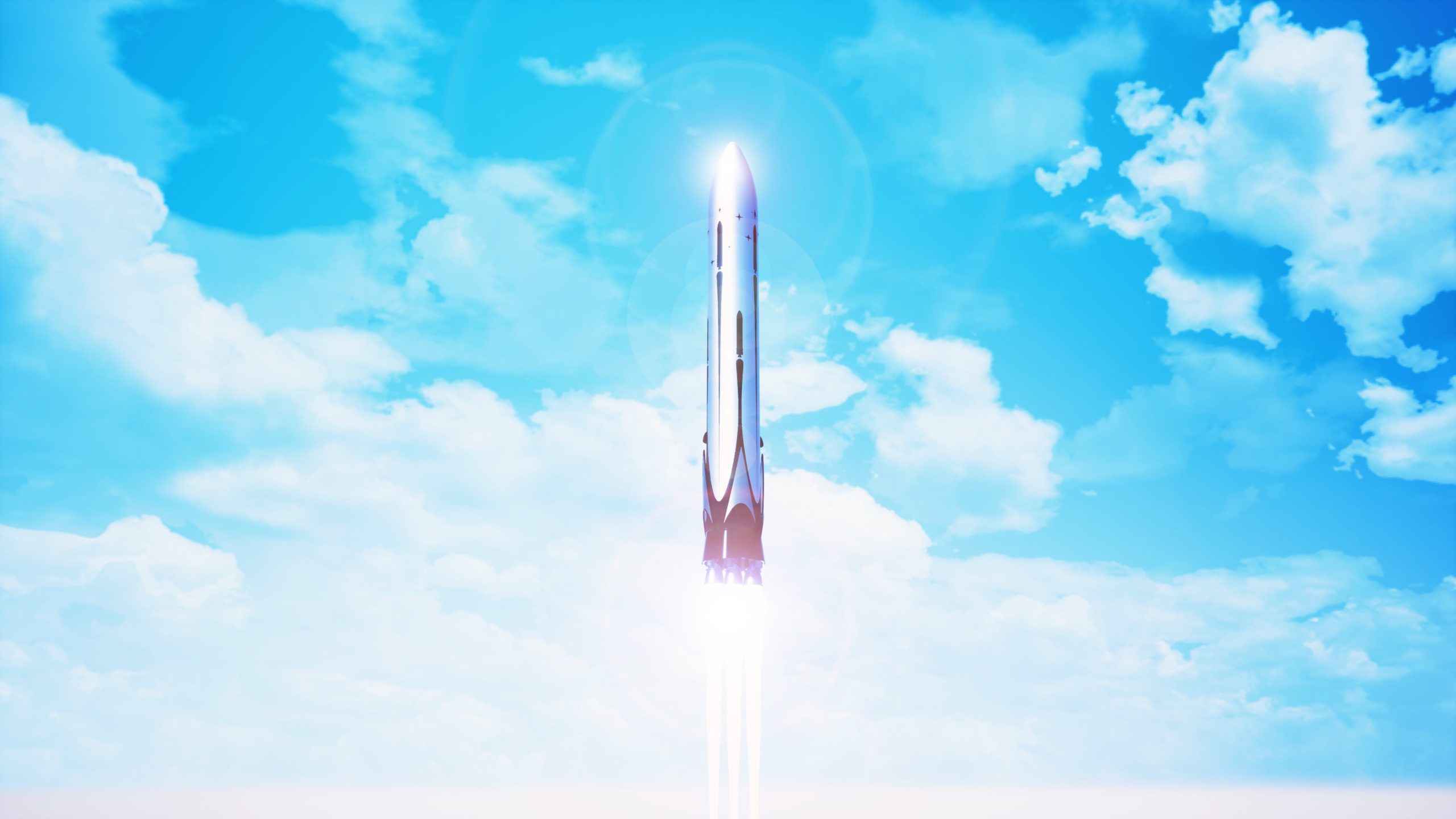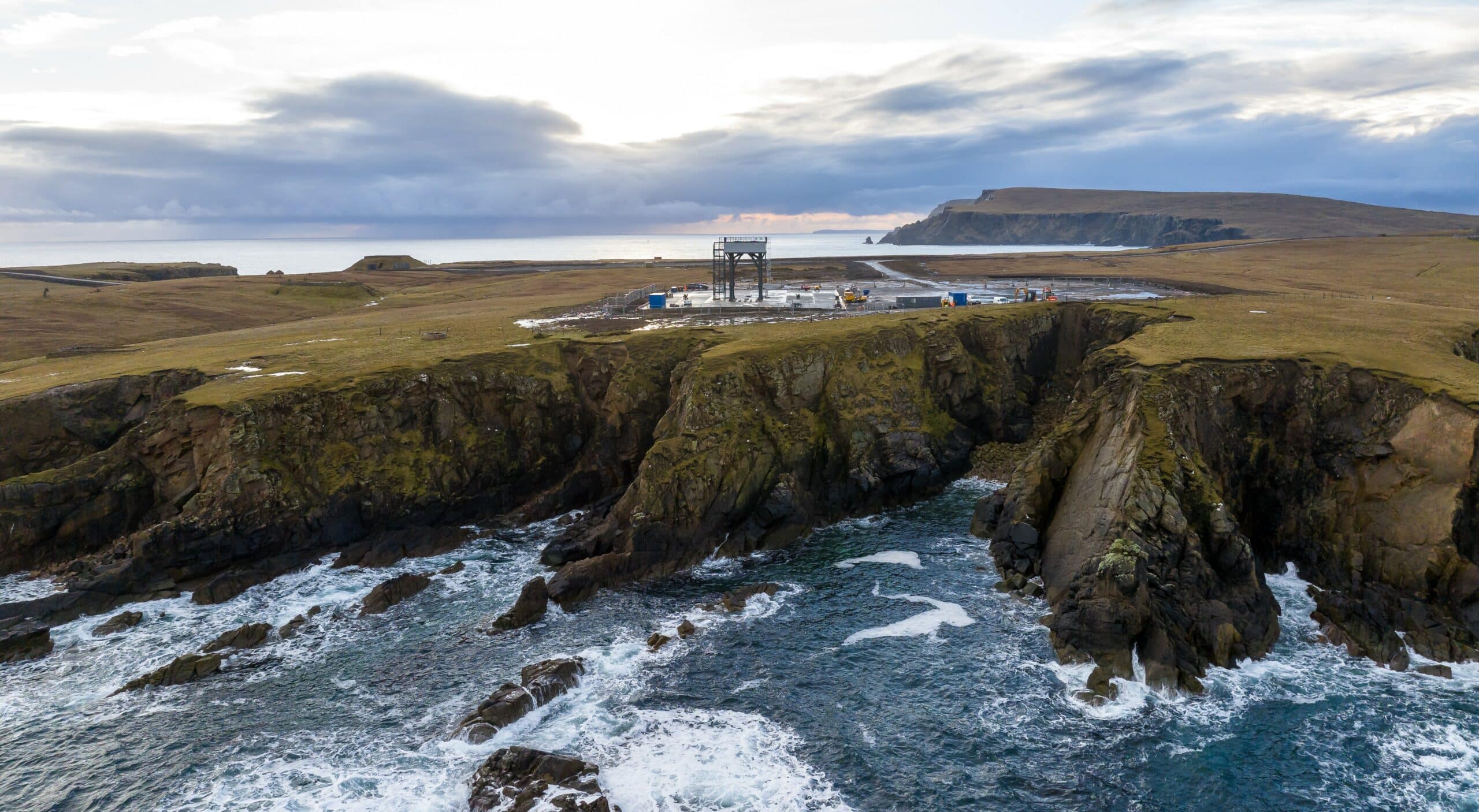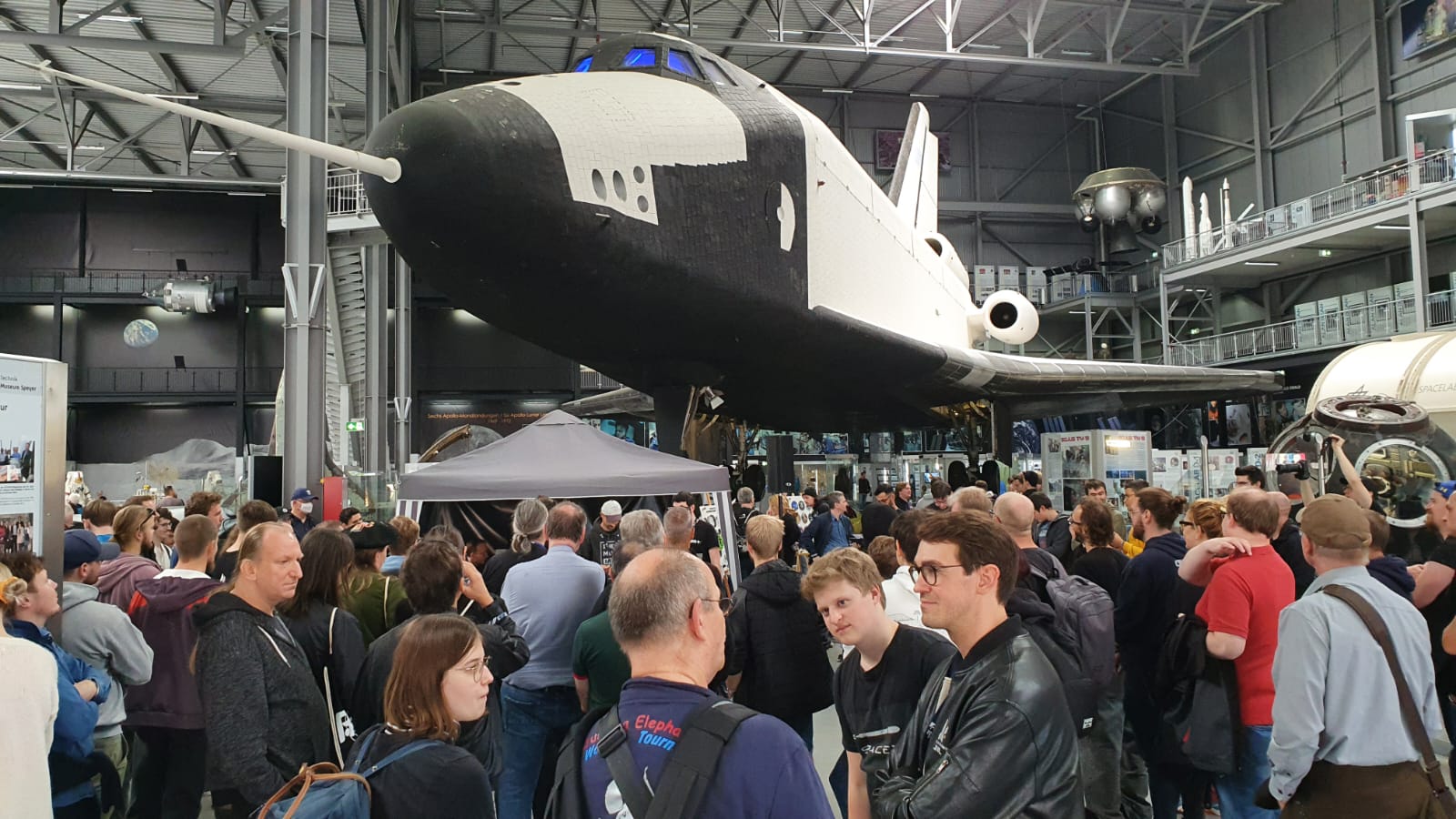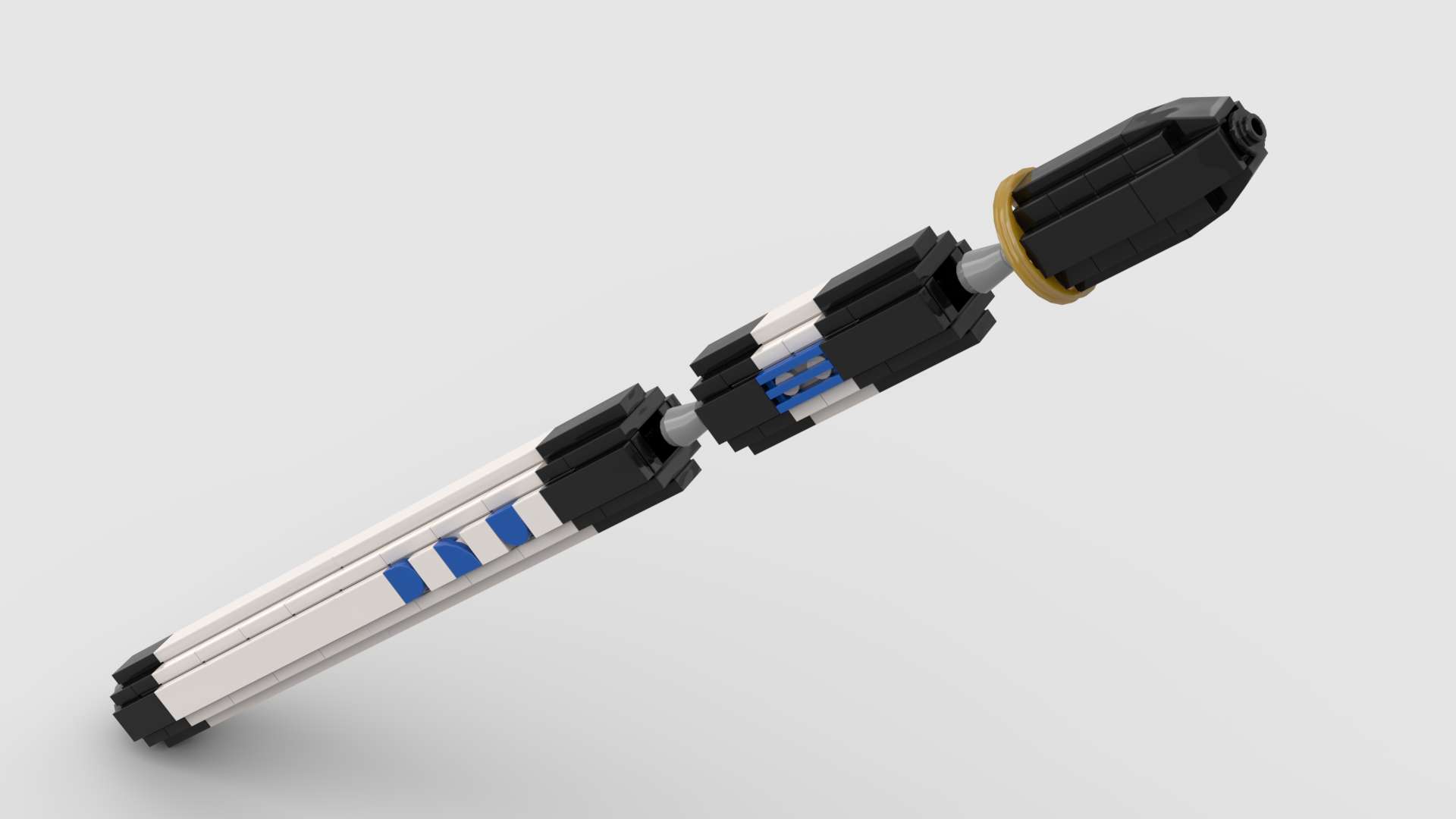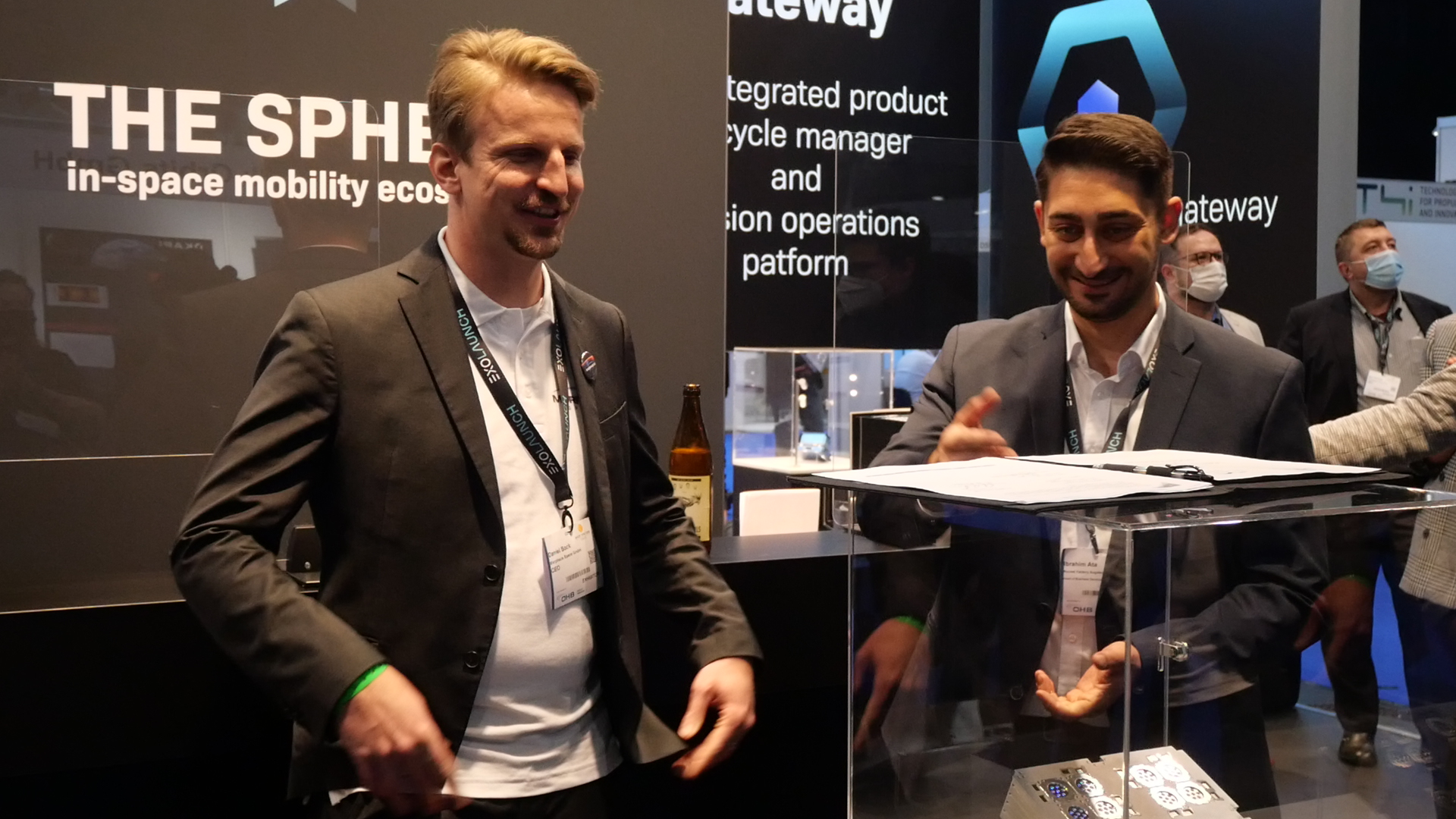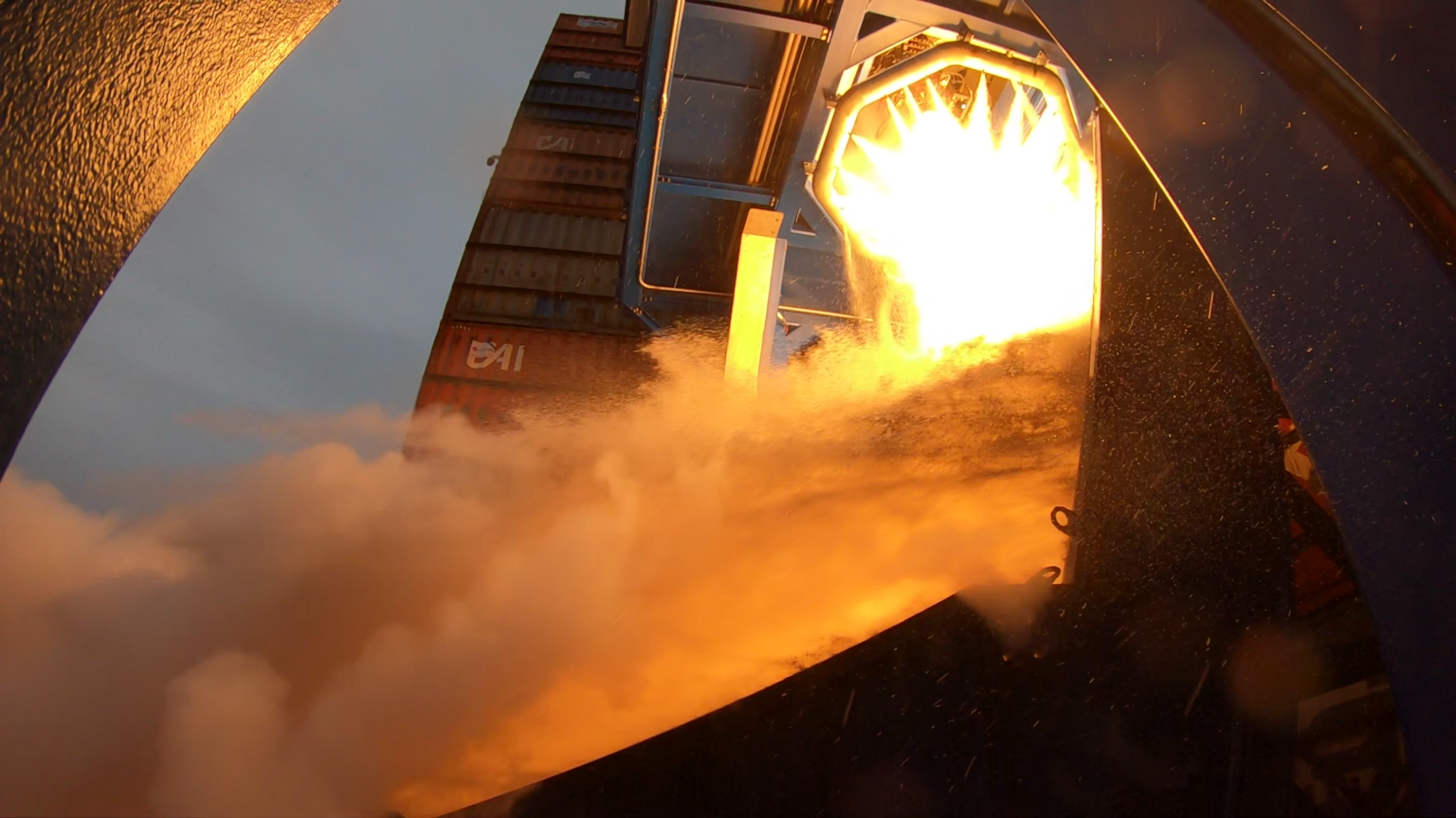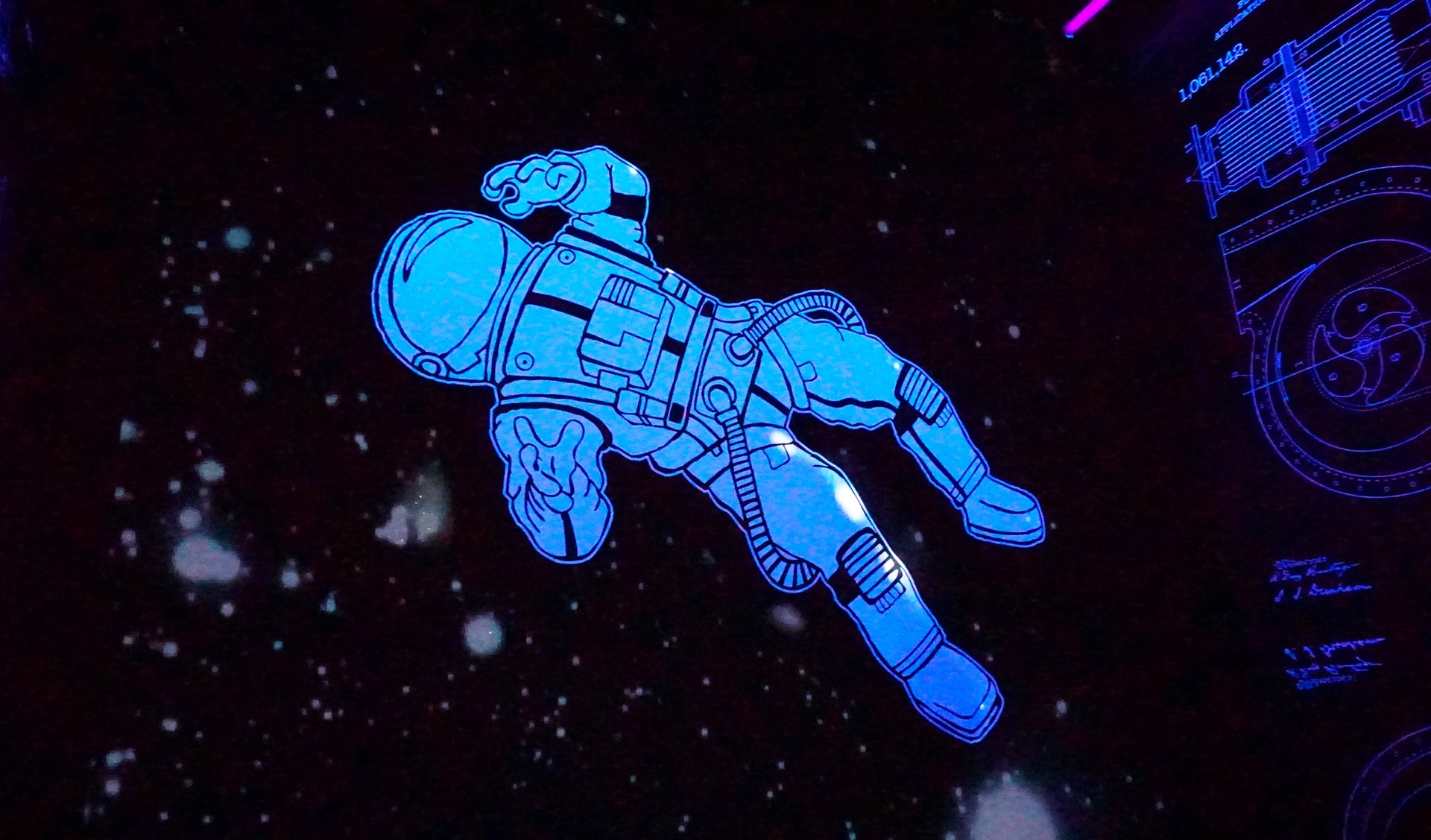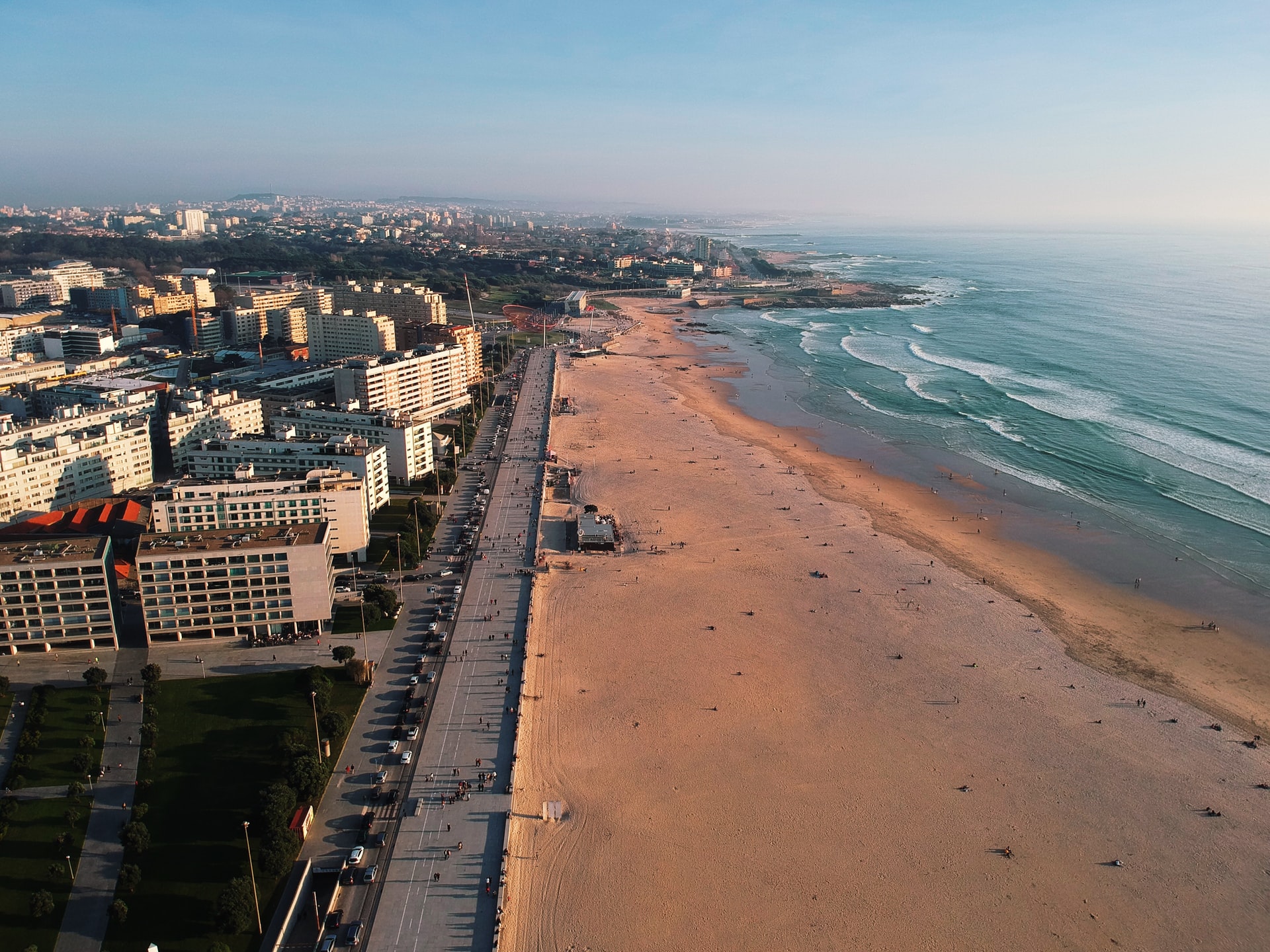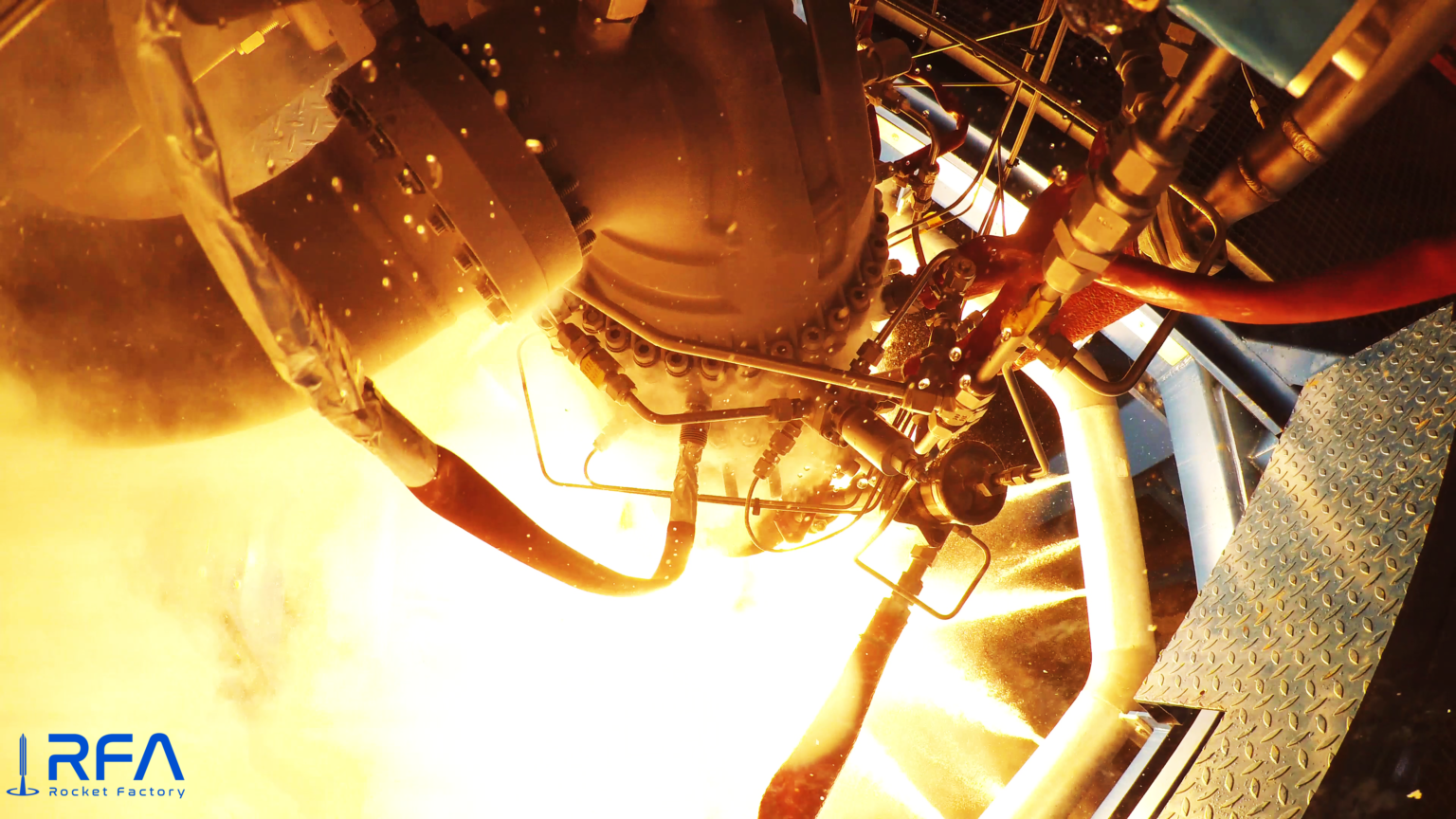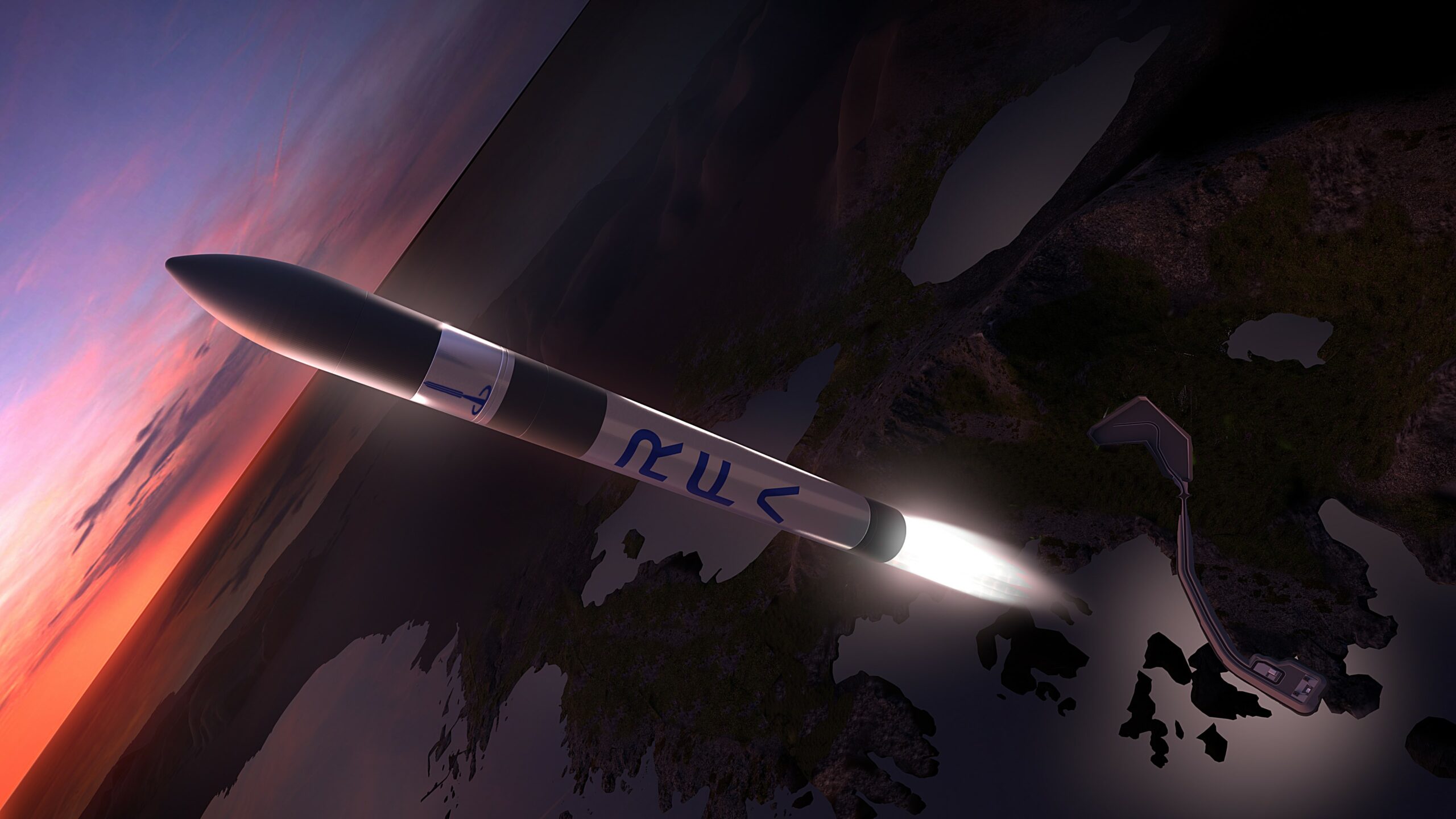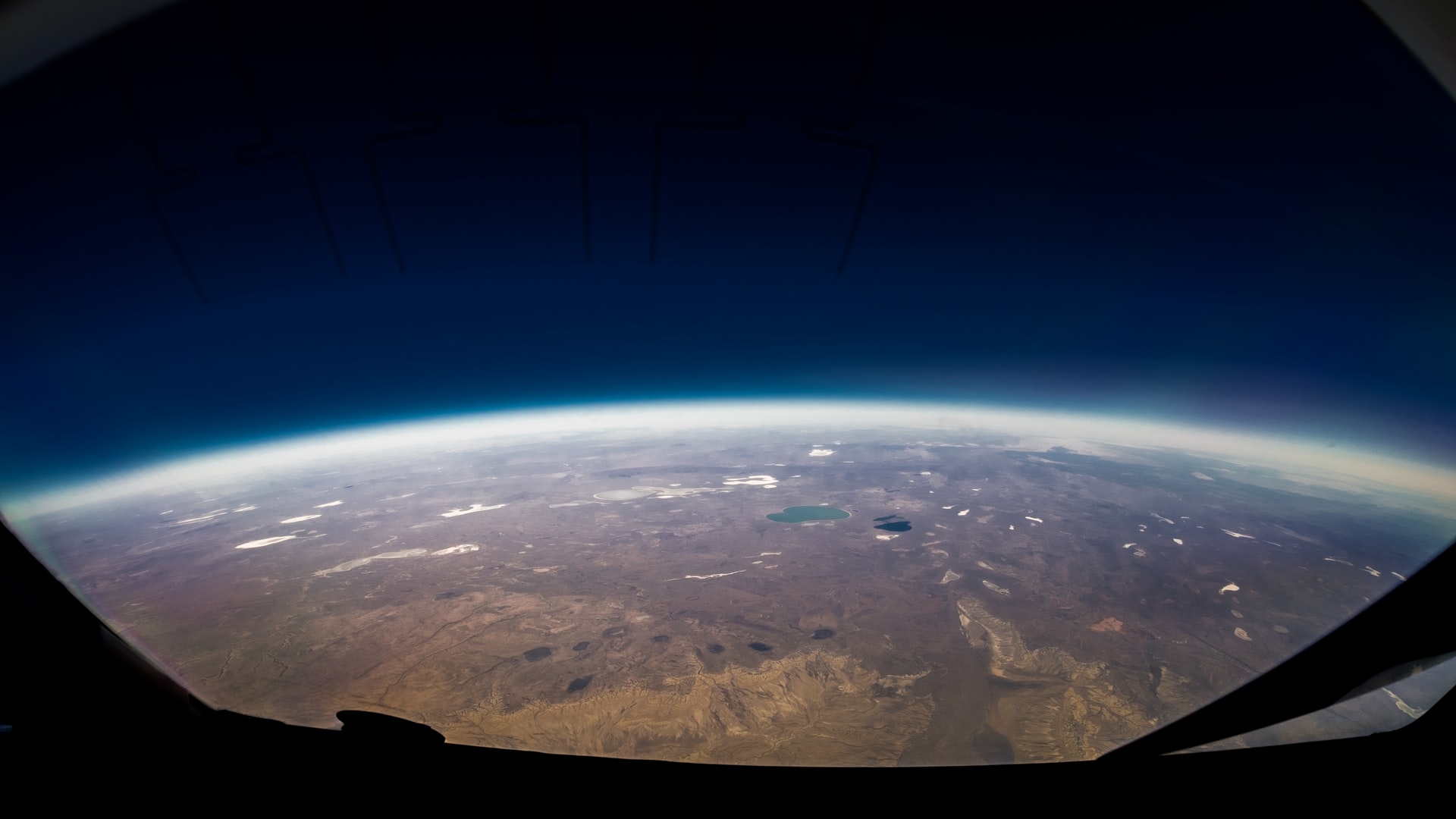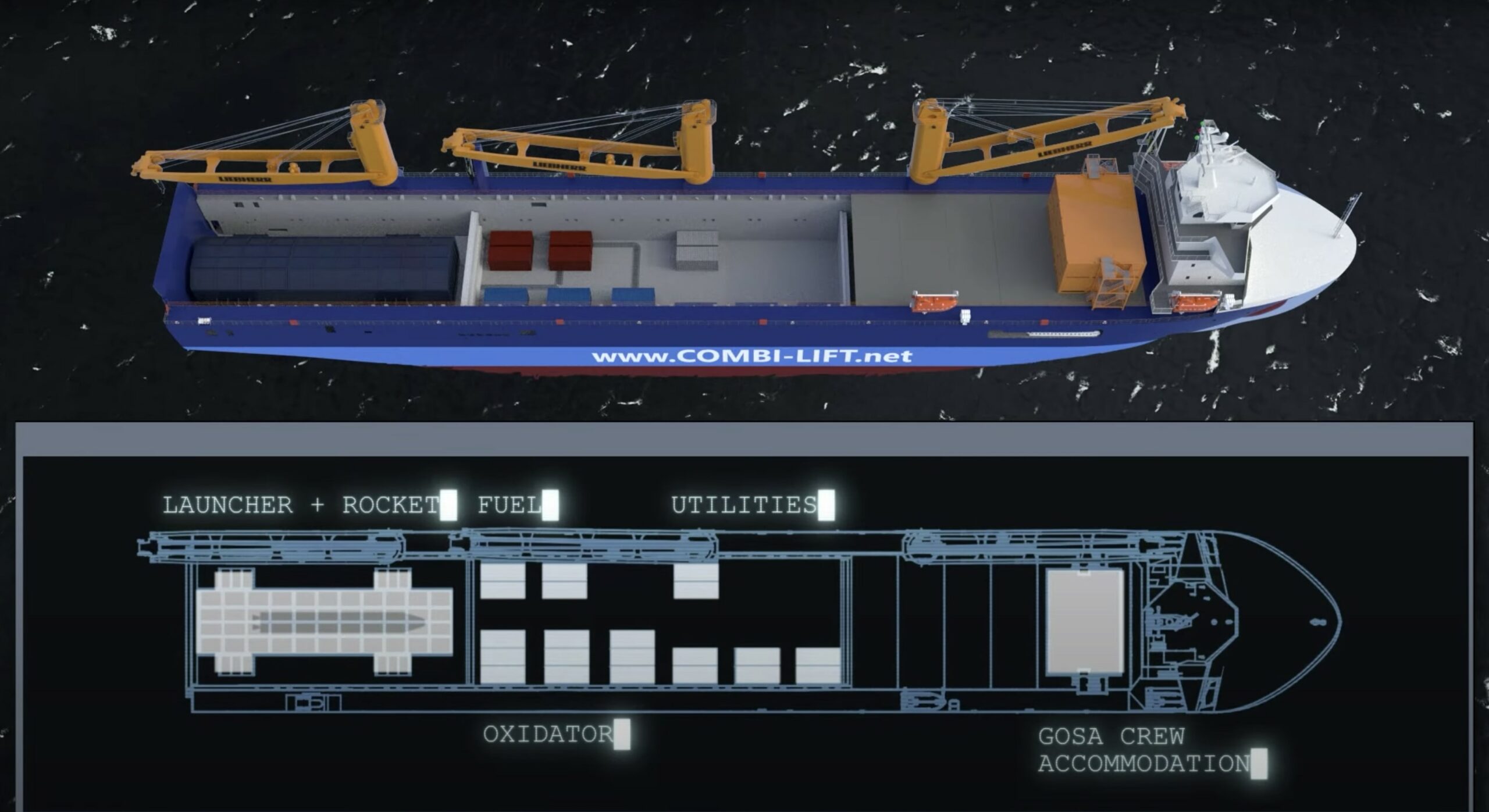
Launch platform for microlauncher in North Sea
This Space News was published on Wed, 08.09.2021 – 10:51 CEST, covering Rocket Factory AugsburgWith HyImpulse, Isar Aerospace and the Rocket Factory Augsburg, three German companies are currently developing launchers for small payloads. Development of the microlaunchers is progressing well at all of them, and the first flights have already been announced for the end of 2022. One question that is becoming more and more pressing in this context: From where should SL-1 (HyImpulse), Spectrum (Isar Aerospace) and RFA One (Rocket Factory Augsburg) be launched into orbit? After all, Germany does not have its own launch site; at the European level, there is only the Guayana Spaceport (Kourou, French Guiana), and Andøya Spaceport, located in Norway, is still under construction. This creates a bottleneck for launch service providers that could slow down German and European NewSpace companies.
From concept paper to cooperation agreement within 2 years
To avoid this, the Federation of German Industries (BDI) already presented a paper at its Space Congress 2019 calling for a German Spaceport. Two years later, on September 6, 2021, the German Offshore Spaceport Alliance (GOSA), founded for this purpose, now invited to the Haus der Deutschen Wirtschaft in Berlin. The occasion was the signing of Memorandums of Understanding (MOU) by four launch service providers for the construction of a launch platform in the North Sea in the presence of German Economics Minister Peter Altmaier.
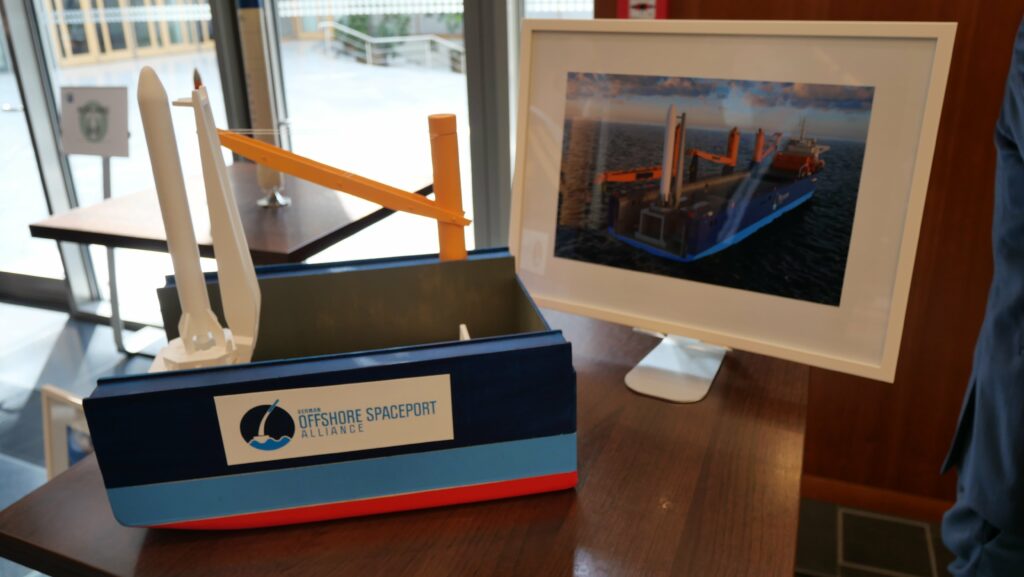
In compliance with the 3G rule in the wake of the Corona pandemic, they thus met again in a physical location after a long time. Only the president of the BDI, Prof. Siegfried Russwurm, was connected via video from Italy. In his greeting, he addressed the need for satellites for communication, navigation and observation. He also mentioned that many of the planned applications are only possible by building large satellite constellations. He described the production of small satellites, the development of microlaunchers and the operation of a dedicated launch platform in the North Sea as a unique opportunity for Germany to build a NewSpace value chain. And in this, according to Prof. Russwurm, a launch platform plays a key role. It has been shown that satellite manufacturers, among others, settle near launch sites. It also eliminates the need for costly and time-consuming transportation abroad or even overseas.
"If that's what you want, we'll set out together".

In his speech, Peter Altmaier, the German Federal Minister of Economics and Technology, also looked back on the developments of the project to date. From talks with Mark Zuckerberg (CEO Facebook) and Elon Musk (CEO SpaceX, among others), he said he knew how great the need for satellites launched into space was. In response to the BDI's call for a German spaceport in 2019, he replied at the time, "OK, if that's what you want, let's get going together." On October 18, 2019, the "BILD" subsequently ran the headline, "Altmaier wird zum ALLmaier!" At the same time, the article raised the question of how anyone could come up with the idea of establishing a spaceport in Germany.
Altmaier discussed in his speech that all major innovations always depended on three factors: First, on physical sense, second, on business viability, and third, on political support. He said he knew that it was essential for innovative projects in particular that industry and the public sector pull together. His special thanks therefore also went to Thomas Jarzombek, the German government's coordinator for German aerospace; Holger Schlienkamp, head of the "Industry for Future Mobility" subdivision at the German Federal Ministry for Economic Affairs and Energy; and Matthias Wachter, head of the International Cooperation, Security Policy, Raw Materials and Space department at the BDI. Wachter's tireless "courage to nag everyone involved" in particular had been a decisive factor in moving this project forward.
In order to further strengthen the future market of NewSpace, Altmaier had agreed with his European colleagues at the end of June, beginning of July, that startups must also have access to tenders so that they are not disadvantaged. A hot topic that is also being discussed in the NewSpace industry, including at the last SpaceBrewery. Regarding market developments, Altmaier said that the industry is moving from the phase of experimentation to that of realization. For this reason, too, the GOSA initiative comes at the right time. He said he was pleased that there was a particular focus on startups.
"These are companies with a great deal of know-how, a great deal of idealism, a great deal of skill, but we also have to support them. Above all, so that they can grow to a size that allows them to compete internationally."
Peter Altmaier, Member of the German Parliament and Federal Minister of Economics
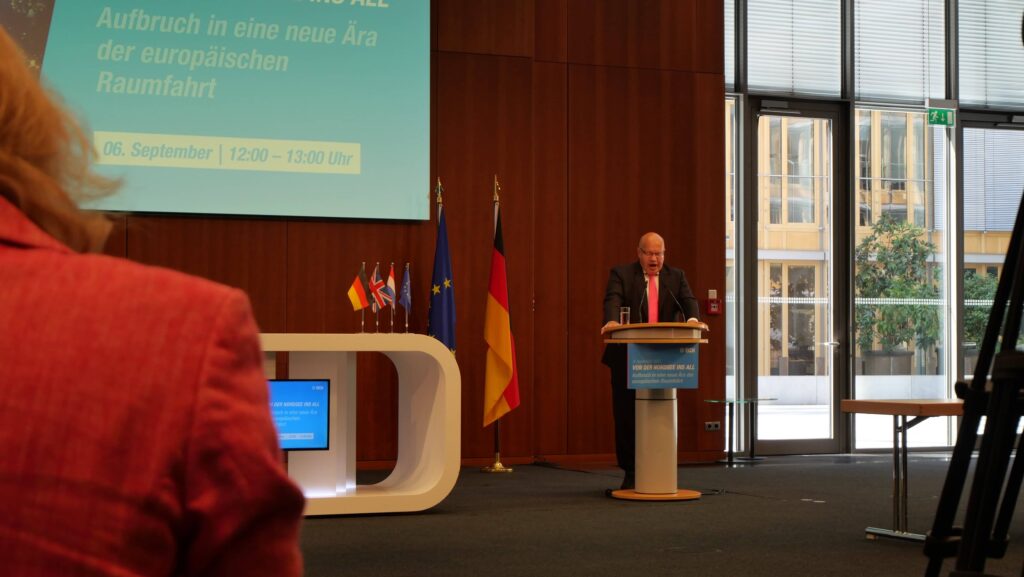
Support for NewSpace companies
He assured small and medium-sized enterprises (SMEs) and startups that would have their business field in the NewSpace business area of support. Regardless of the outcome of the Bundestag elections on September 26, 2021, he promised that his company would contribute half of the costs of a feasibility study. A prerequisite for this, however, would be that the private players also participate. This is to avoid the impression that it is a matter of state paternalism. In addition, the state would act as an anchor customer; there were more than enough applications for satellites. Altmaier cited the Ukraine crisis, which occurred during his time as chancellery minister, as a negative example. At that time, he said, he found that Germany was unable to "know for itself what was going on in other parts of the world because of a lack of satellite capacity." Satellites are to be used not only for reconnaissance purposes, however, but primarily for climate, environmental and disaster protection, as well as for communications. There would be enough use cases for this, not only to be able to act as an anchor customer, but also to want to do so.
Important step in the right direction
To this end, the German government's space program is to be strengthened and, among other things, further competitions are to be set up. In this respect, the joint microlauncher competition of the German Aerospace Center (DLR) and ESA should be understood as complementary, not as contradictory. Altmaier described the signing of memoranda of understanding on cooperation between GOSA and launch service providers as a good and encouraging step in the right direction. The fact that two of the four manufacturers of mirco-launchers are from Germany and one each from the United Kingdom and the Netherlands shows that this is not a national but a European challenge.
"Today, we are not only taking a step in Germany, but we are taking a step together with our neighbors in Europe toward technological sovereignty, which should not be confused with autarky or autonomy. But it should help Germany as an industrial location to continue the success story that has already distinguished it in recent decades."
Peter Altmaier, Member of the German Parliament and Federal Minister of Economics
HyImpulse, Rocket Factory Augsburg, Skyrora and T-Minus sign Memorandum of Understanding with German Offshore Spaceport Alliance
The speech of the Federal Minister of Economics was followed by the signing of the MoU's between GOSA and the startup service providers. The first was HyImpulse, whose Co-Founder and Co-CEO Christian Schmierer confirmed the intention to cooperate with his signature. This was followed by Volodymyr Levykin, Founder and CEO Skyrora, a British NewSpace company based in Edinburgh, Scotland. Third, CCO Jörn Spurmann signed the letter of intent on behalf of Rocket Factory Augsburg. Last, but not least, was Mark Uitendaal, who signed for the Dutch NewSpace company T-Minus.
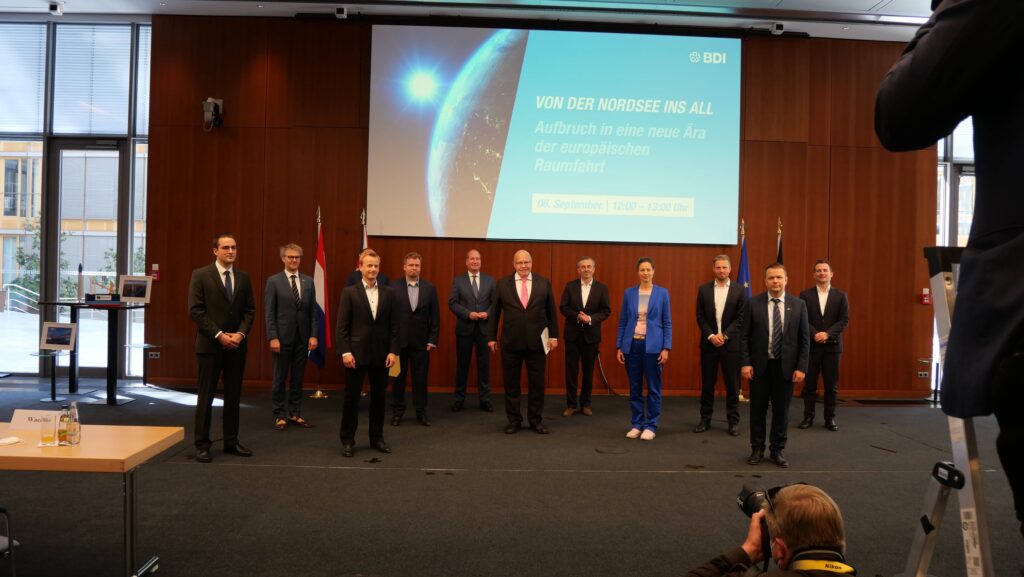
Thomas Jarzombek, Martin Polak, Sabine von der Recke and Sven Przywarra in conversation with Matthias Wachter
After a short break - during which the viewers of the livestream could watch the project video - there was a talk on the panel. Thomas Jarzombek, Martin Polak (Director Public Institutions Business EMEA at Planet), Sven Przywarra (Co-Founder of LiveEO) and Sabine von der Recke (Spokesperson of the German Offshore Spaceport Alliance) came together under the moderation of Matthias Wachter. The first question was addressed to Thomas Jarzombek. He was asked to give a summary of the developments of the last years in spaceflight and an outlook on the development of NewSpace.
Jarzombek also thanked Wachter and the BDI for their commitment and emphasized that all parties involved were interested in going over the target before the German elections. In his opinion, the approach to the launchers was a showcase for "how it can be done." He stressed that Germany was now number one in Europe in subscribing to 33 billion euros for ESA, and that never before had so much been subscribed. At the same time, however, he pointed out that this sum was not a contribution, but an investment that would flow back into industry on a 1:1 basis. Of the 33 billion, he said, 500 million euros are planned for the Ariane program, and of this 500 million, 27.5 million are planned for the microlauncher competition. This results in a grant of 1.5 million euros to three companies versus 500 million to the Ariane program. In proportion, he said, the outcome is phenomenal, so this strategy is now being applied to other projects. As examples, Jarzombek cited the field of small satellites, but also quantum computers.
"I would like to see the Department of Research also kissed a little by the leisure of NewSpace."
Thomas Jarzombek, German Aerospace Coordinator of the Federal Government
Sabine von der Recke emphasized that it is very valuable for a project like a launch platform in the North Sea that there is a public commitment to it. Nevertheless, she said that the development of the concept was designed from the outset to do this together with the users. That's because you don't want to develop something behind closed doors that puts a gun to your potential customers' heads and forces them to use it, she said.
Martin Polak emphasized that with a Spaceport, Germany would get a complete NewSpace ecosystem. There are already launcher manufacturers and a strong supplier industry, from which an international company like Planet also benefits, as well as skilled workers. All in all, this makes Germany very interesting for a company that builds satellites. Polak is convinced that this will attract investment from abroad. Likewise, that investments will stay in Germany. He says the Spaceport is particularly important in terms of the downstream sector, i.e. the use of data from space to solve problems on Earth. For this, satellites are essential, and already a large percentage of companies are active in this area, as a look at the first NewSpace Business Update HY1 2021 from Capitol Momentum published last week shows.
Downstream is where LiveEO operates, whose co-founder Sven Przywarra took a look back at his own company's founding. Because back then, Przywarra said, there were great advances in satellite technology and thus an incredible potential of data sources. What was missing, however, were applications that made sense of this data for companies. LiveEO's goal, he said, is to "bring Earth Observation to Enterprise." Meanwhile, the Berlin-based company monitors vegetation along Deutsche Bahn's entire rail network and E.DIS's entire power grid. Przywarra is certain that there will be numerous other "applications of NewSpace outside of space" in the future.
"We're only able to do what we do because of the value stack we have. From the rocket platform to the launchers to the satellite builders and the data providers."
Sven Przywarra, Co-Founder LiveEO
According to Przywarra, the interface to the end user is always at least one of three points: position, communication or earth observation. He sees enormous potential in the coming years, especially for emerging companies in Earth Observation and communications.
The "Closing Remarks", i.e. the final words, were spoken by Dr. Joachim Lang, Chief Executive of the BDI. He also emphasized that the signing of the MoUs was a clear sign that a new ecosystem was emerging in Germany and Europe. This is not something we are prepared to leave to others, he said, but something we want to use ourselves. The fact that the project for a launch platform in the North Sea has reached its current status within two years is a "damn short time by political standards." At the same time, he said, it was a truly successful example of collaboration between politics and business. He asked everyone involved not only to keep their fingers crossed, but also to remain committed to the success of the project.
via BDI, on-site participation


